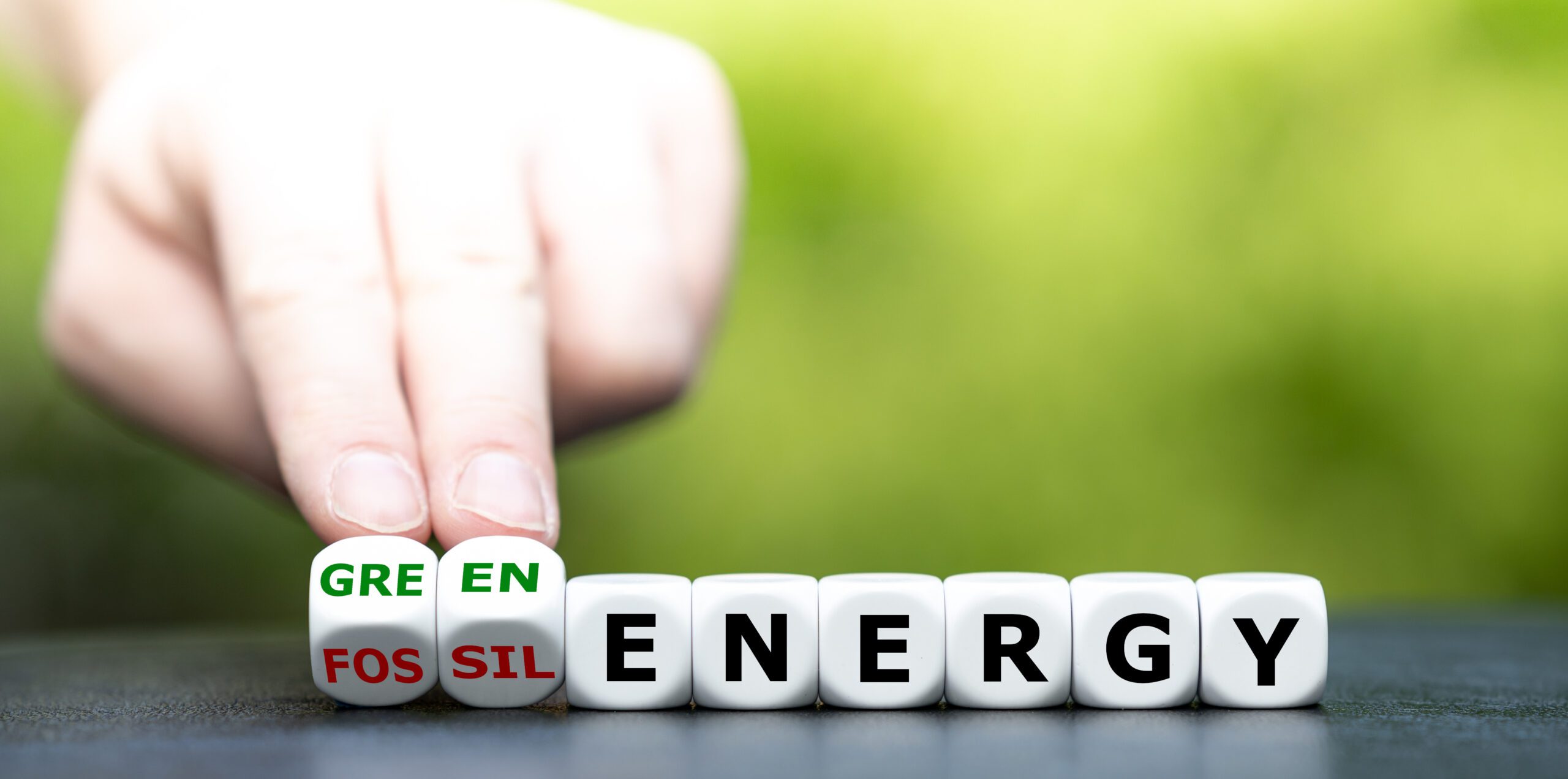We've compared the UK's green energy suppliers
We’ve compared and looked at the claims of the UK green energy suppliers and have given them a handy rating for you.
| Electricity Supplier | Logo | Green tariff on offer? | 100% renewable energy green tariff? | EV tariff on offer? (many unavailable) | 100% renewable energy EV tariff? | Option for green gas (directly or offset)? | Net-zero pledge | comparegreen.com rating |
|---|
Click here to search and compare green tariffs.
#1 Good Energy: comparegreen rating 5/5
Good Energy is a UK-based renewable energy company that was founded in 1999. The company supplies 100% renewable electricity to homes and businesses in the UK, as well as offering carbon-neutral gas supply.
Good Energy has its own wind and solar farms, and also sources renewable energy from a network of independent generators across the UK. Specifically, it owns and operates 6 solar projects and 2 wind sites, and holds PPAs with over 1700 generators.
One of the key features of Good Energy’s business model is its commitment to transparency and ethical business practices. The company publishes an annual sustainability report and is certified as a B Corp, which means that it meets rigorous standards for social and environmental performance, accountability, and transparency.
The company has been vocal about its concerns over energy company greenwashing and the use of RECOs. The company prefer to use PPAs as they provide greater financial support and security to generators compared with selling REGOs. Furthermore, to ensure customer demand is backed by PPAs, over the course of a year the company tends to over-procure.
Alongside 100% renewable energy electricity tariffs, Good Energy offers its customers a feed-in tariff, which allows them to earn money by generating their own renewable energy and selling any excess back to the grid.
Good Energy’s EV tariff, ‘Green Driver’ is currently closed to new applicants. 10% of the gas Good Energy supplies is renewable biogas generated in Britain. The rest is offset by investing in projects that improve access to green energy around the world.
#2 Ecotricity: comparegreen rating 5/5
Ecotricity has around 200,000 customers in the UK and was founded in 1995. The company generates electricity from renewable sources such as wind, solar, and biomass, and also supplies it to homes and businesses across the UK.
Ecotricity also operates a network of electric vehicle charging stations, called the Electric Highway, which provides charging points at motorway service areas and other locations throughout the UK.
The company has no shareholders and therefore states that instead of paying dividends they reinvest into new renewable energy capacity.
All of Ecotricity’s tariffs are 100% renewable electricity as standard and the company’s gas is a mix of carbon-neutralised natural gas and sustainable green gas.
Around 20% of the electricity supplied under the tariffs is generated by the company itself and the rest is certified green energy bought from other green generators or via the wholesale market. ‘Fully Charged’ is Ecotricity’s EV bundle for electric car drivers and includes a 100% renewable energy tariff, electric highway charging access and a discount on home charging infrastructure.
#3 Green Energy: comparegreen rating 5/5
Green Energy was founded in 2001 and supplies 100% renewable energy-sourced electricity and, unlike most utilities, it also supplies 100% green gas derived from farm, food and landfill waste. The company does not generate its own energy and uses REGOs for its electricity and Renewable Gas Guarantees of Origin (RGGOs) for its gas.
The company currently offers two tariffs, one of which (EKO Energy tariff) also fulfils strict sustainability criteria; which means the energy is generated in locations ensuring marine and bird habitats are safeguarded. The company also has a ‘Tide’ energy solution which incorporates a time-of-use (TOU) energy tariff that is designed to work in conjunction with EVs or a Home Energy Storage solution. However, Tide is temporarily unavailable to all customers, with Green Energy citing ‘ongoing volatility in the energy market’ as the reason.
#4 Octopus Energy: comparegreen rating 4/5
Octopus Energy was founded in 2015 and quickly grew to become one of the leading challenger energy brands in the UK. It is also now one of the largest electricity suppliers in the UK, with nearly 5 million customers, thanks to its recent acquisition of Bulb Energy at the end of 2022.
While Octopus Energy is primarily an electricity supplier, the company does also have a generation arm: Octopus Energy Generation, which is one of Europe’s largest investors in renewables: operating £4 billion worth of green energy generators across 7 countries.
Octopus Energy is known for its strong environmental credentials and, in 2018, it switched all our customers to 100% renewable electricity. As such, every tariff offered by Octopus is supported by 100% renewable energy, through a combination of buying directly from UK green generators, sourcing from its own green generation via over 300 renewable sites managed by Octopus Energy Generation, and buying REGO certificates.
There is also a tariff on offer that will offset carbon emissions from customers’ gas use (Supergreen Octopus), while the Co-op Community Energy tariff will source 100% of the electricity on the tariff from community-based renewable energy projects across the country. Octopus offers several EV tariffs, again utilising 100% renewable energy.
#5 OVO Energy: comparegreen rating 4/5
Ovo Energy was founded in 2009 and now serves nearly 5 million customers. In 2020, Ovo Energy acquired SSE’s retail energy business, making it one of the largest energy suppliers in the UK. The company’s success has been driven by its focus on renewable energy, innovation, and customer service.
OVO Energy offers several ‘energy plans’, in other words, tariffs, all of which include 100% renewable electricity as a standard feature. Additionally, customers have the option of upgrading to OVO’s Green Energy upgrade called ‘OVO Beyond’, which provides a range of carbon reduction measures to choose from. OVO launched its new smart charging EV plan ‘Charge Anytime’ in March 2023, which is powered by the energy software platform Kaluza.
All the renewable electricity supplied to OVO customers is backed by REGOs. In July 2022, OVO was the first supplier to commit funding to specifically support subsidy-free REGOs, helping to incentivise more small-scale, independent wind and solar farms by offering them an above-market price for the electricity they generate.
By providing a premium value for REGOs from renewable generators that have not received any subsidy from Government or industry-backed schemes, the initiative’s aim is to create a thriving market that will directly drive new investment in renewable assets in the UK.
#6 Scottish Power: comparegreen rating 4/5
Scottish Power serves around 5 million households and businesses, and unlike the name suggests, operates across the UK and not just in Scotland. Not just a supplier, Scottish Power is also an important generator of electricity in the country.
The company has a strong focus on renewable energy: in 2018, Scottish Power announced that it has become the first major UK energy company to discard its fossil fuel power portfolio to focus on wind power generation.
In fact, ScottishPower Renewables is part of the Iberdrola Group, the leading wind energy producer worldwide. Scottish Power is also dipping its toe into the UK’s green hydrogen market and the company, alongside Hutchison Ports, is exploring the opportunity to develop, build and operate a multi-hundred MW green hydrogen production facility at the Port of Felixstowe – with the potential to decarbonise industry and transportation in the region.
Scottish Power offers several green tariffs, that are cited as ‘100% green’, sourced solely from its own renewable projects, thereby avoiding any form of greenwashing. The company also offers a 100% renewable energy-sourced EV tariff.
#7 EDF Energy: comparegreen rating 4/5 or 3/5 – depending on your stance on nuclear power
EDF Energy is the UK’s biggest supplier of electricity by volume and serves over 6 million homes and businesses across the UK. The company It is a subsidiary of EDF Group, a French multinational energy company, and has been operating in the UK since 2002. The company is also a major electricity generator in the market, operating several power stations, including coal, nuclear and renewable energy.
EDF invests heavily in low-carbon power generation across the UK, with a targeted investment of GBP50 billion up to 2035. This will see the development of both renewable generation projects and an expansion of the UK’s nuclear fleet.
The company is also at the forefront of UK green hydrogen plans: EDF Renewables UK plans to undertake the innovative Tees Green Hydrogen project that harnesses green electricity sourced from the nearby Teesside Offshore Wind Farm, along with a new solar farm that they intend to build in the Redcar area, to fuel its hydrogen electrolyser. The project will cater to the requirements of local business clients by supplying hydrogen, thereby facilitating decarbonisation efforts and substantially decreasing industrial pollution.
Turning to the supply side, all of EDF Energy’s home fixed tariffs are based on zero-carbon electricity as standard. However, unlike many other suppliers, this is inclusive of the nuclear power it generates.
In fact, the company state that given they produce their own clean electricity and therefore do not need to buy REGOs, they can avoid any association with greenwashing. EDF have several EV charging tariffs, dubbed ‘GoElectric’. The electricity sourced for these tariffs is from renewable sources like wind, solar, biomass, tidal and hydroelectric (no mention of nuclear!). At the end of each fuel mix reporting year, EDF will ensure they’ve purchased enough renewable electricity from EDF-owned renewable generation to match the total volume of electricity supplied to all their customers on the GoElectric tariff.
#8 British Gas: comparegreen rating 3/5
British Gas is a subsidiary of Centrica, a multinational energy and services company based in the UK. British Gas serves over 10 million customers across the UK. They offer a range of energy products and services, including fixed and variable energy tariffs, boiler repair and servicing, smart home technology, and energy efficiency advice. The company operates Hive, a smart home technology brand that offers products such as smart thermostats and smart plugs.
In terms of its tariff offering, customers can choose its ‘Green Future’ energy tariff which incorporates several sustainability pledges within in. On this tariff, British Gas will match 100% of the electricity used with renewable sources, (mainly via the purchase of REGOS) and 100% of the CO2 footprint from the customer’s gas use will be balanced by carbon-cutting projects around the world (90%), and renewable biogas made from food and farm waste (10%).
Finally, British Gas states that it will protect five trees in the UK per fuel for each year of the customer’s green energy tariff. British Gas do offer EV tariffs, but it is not clear whether the electricity sourced on this tariff is from renewable energy.
#9 E.ON UK: comparegreen rating 3/5
E.ON serves over 3.7 million homes and businesses across the country. The company is a subsidiary of E.ON SE, a German energy company, and has been operating in the UK since 2002. Npower is a former energy company in the UK that was acquired by E.ON in 2019.
It is also a notable generator in the UK, with a portfolio of capacity including gas, biomass, wind and decommissioned coal plants. E.ON were behind the UK’s first ever offshore wind farm – the twin turbines off the coast of Blyth in Northumberland.
E.ON is also looking to expand its footprint in the hydrogen sector and E.ON and a consortium of industry partners, academics and local authorities launched a new study in November 2022 to assess the feasibility of green hydrogen for steelmakers in South Yorkshire, utilising E.ON’s ‘Blackburn Meadows’ biomass-fuelled combined heat and power plant.
On the supply side, the company launched E.ON Next in 2020, which is a digital-first energy supply package, with a heavy emphasis on digital technology and online services. All the customers under E.ON Next tariffs get 100% renewable electricity.
While E.ON is a generator of electricity, it cannot ensure all of its customer’s electricity demand is met with its own generation and therefore uses a combination of partners, its own sites and REGO certificates to fulfil demand requirements under its 100% renewables tariffs. The company’s EV tariffs are also 100% renewables and offer carbon offsetting options.
#10 Shell Energy: comparegreen rating 2/5
Shell Energy is a subsidiary of Royal Dutch Shell, one of the largest oil and gas companies in the world. In the UK, Shell Energy is primarily involved in supplying gas and electricity to residential and business customers. The company was formerly known as First Utility, which was acquired by Shell in 2018. Shell Energy has also launched a virtual power plant project, which uses smart home technology to aggregate and manage electricity from renewable sources.
All electricity tariffs offered by Shell Energy are 100% renewables, which are all backed by REGOs. The company also offers carbon offsetting options for customers who want to reduce their carbon footprint, under Shell Energy’s ‘Go Further’ tariffs. EV tariffs are currently unavailable (as of March 2023).



